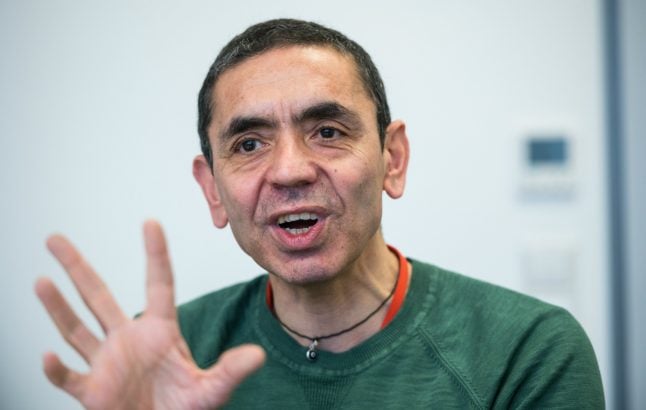BioNTech has never brought a vaccine to market before.But its experimental technology has now put it in pole position in the global race to develop a jab that will end the coronavirus crisis.
Along with its US partner Pfizer, BioNTech announced on Monday that their vaccine has proved 90 percent effective in ongoing Phase 3 trials, paving the way for them to apply for emergency use approval.
READ ALSO: Covid-19 vaccine found to be '90 percent effective', says German biotech firm
Cancer pioneer
Mainz-based BioNTech was co-founded in 2008 by Uğur Şahin and his wife Özlem Türeci, both scientists and the children of Turkish immigrants to Germany, as well as Austrian cancer expert Christoph Huber.
The firm that invented the #Pfizer vaccine, Biontech, is a German medical startup founded by the children of Turkish #immigrants: Özlem Türeci (CMO) and Uğur Şahin (CEO). pic.twitter.com/KtrPjnWCTz
— Christian Odendahl (@COdendahl) November 9, 2020
In normal times, BioNTech and its roughly 1,500 employees are focused on developing specialised immunotherapies for cancer patients based on “messenger RNA” (mRNA) molecules that trigger the building of proteins in cells, to stimulate the immune system.
It's this same technology, which has the benefit that it can be developed more quickly than traditional vaccines, that lies at the heart of its Covid-19 shot.
The vaccine would introduce synthetic mRNA into the human body to trick the immune system into producing the viral proteins needed to provoke a safe but robust offensive against the coronavirus.
READ ALSO: EXPLAINED – How Germany is preparing for the coronavirus vaccination
Early in the starting blocks
Şahin, 54, jumped into action in January shortly after reading about the emergence of a new and deadly coronavirus in the Chinese city of Wuhan.
By the time much of the planet was in lockdown in March, BioNTech had developed 20 vaccine candidates based on mRNA technology, he told Der Spiegel weekly.
Those were eventually whittled down to a handful of the most promising options, with vaccine BNT162b2 now becoming the frontrunner.
Teaming up with Pfizer
Having struck a deal with US pharma giant Pfizer to work together to develop mRNA-based flu vaccines in 2018, teaming up on a potential coronavirus vaccine was an obvious next move for BioNTech, which has yet to bring one of its ideas to market.
The two companies announced in March that they aimed to jointly develop a Covid-19 jab, “pairing Pfizer's development, regulatory and commercial capabilities with BioNTech's mRNA vaccine technology and expertise”, they said at the time.
While global headlines tend to lead with Pfizer's involvement, Şahin insisted to Spiegel: “It is our technology.”
The cooperation is a good fit because it allows BioNTech “to develop and distribute a possible vaccine in the shortest time possible”, he added.
 A lab employee in BioNTech's headquarters in Mainz. Photo: DPA
A lab employee in BioNTech's headquarters in Mainz. Photo: DPA
Global rollout
The BNT162b2 vaccine, if approved, would require two jabs to be effective.
BioNTech and Pfizer have said they expect to supply up to 50 million vaccine doses globally in 2020, and up to 1.3 billion in 2021.
In a clear sign that they were gearing up for mass production, BioNTech in September bought a manufacturing site in Marburg in western Germany from Swiss pharma group Novartis, along with its 300 employees, allowing it to produce
millions of additional doses each year.
BioNTech already has two other production sites in Germany, while at least four Pfizer sites in the United States and Europe will join in the unprecedented effort to roll out a vaccine at record speed.
The EU and a slew of countries including the US, Japan and Britain have already placed orders for millions of doses of the BioNTech-Pfizer vaccine as nations eagerly await the regulatory nods, which could see the jab become available before year-end.
BioNTech has also struck a deal with Shanghai-based Fosun Pharmaceutical Group, which will have the exclusive rights to bring the vaccine to China.
By Sophie Makris



 Please whitelist us to continue reading.
Please whitelist us to continue reading.
This has to be a joke, right?
Come on! They cant even eradicate the seasonal flu, but you’re gonna tell me now they have a Vaccine for Covid-19 after only less than a year. This is a sham. People need to wake up!
The seasonal flu is not one but multiple virus strains that mutate each year. That is why you cannot have a one size fits all vaccine.